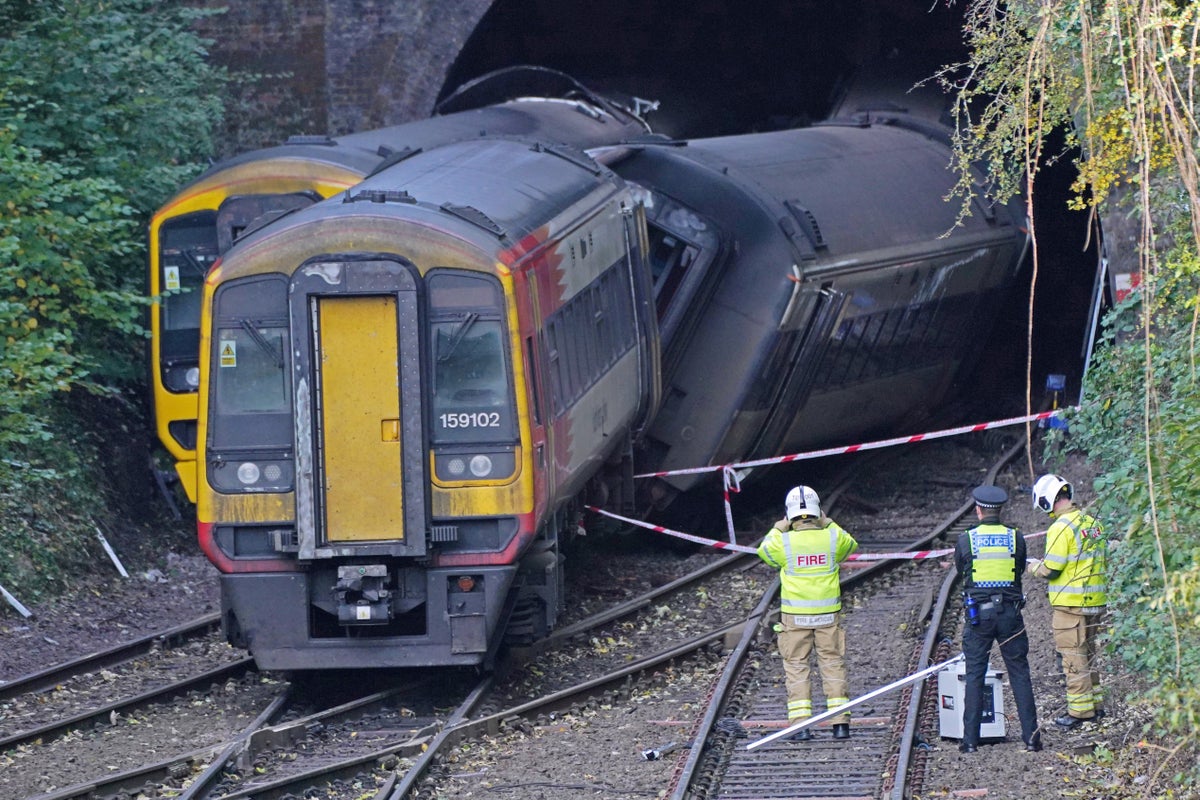
A train driver involved in a crash that injured 14 people didn’t brake early enough to allow for slippery leaves on the line approaching a red signal, a report found.
The South Western Railway driver “did not apply the train’s brakes sufficiently early on approach to the signal protecting the junction to avoid running onto it,” the Rail Accident Investigation Branch (RAIB) concluded.
It also found Network Rail had not “effectively managed the risks” of leaves on the line before the collision, in Salisbury, Wiltshire, in 2021.
A railway worker and 13 passengers needed hospital treatment after the South Western Railway train from London Waterloo to Honiton ran into a Great Western Railway service from Portsmouth to Bristol that was crossing Salisbury Tunnel Junction on October 31.
Both trains derailed and came to a rest inside Fisherton Tunnel, on the approach to Salisbury station.
The South Western Railway train was almost in a “potentially far more serious collision” with a third service travelling in the opposite direction – a disaster avoided by “less than a minute”.
The crash happened at Salisbury Tunnel Junction, approaching Fisherton Tunnel, near Salisbury, Wiltshire.— (RAIB)
The crash forced the closure of the line between Salisbury and Andover for 16 days, as more than 900 metres of new track were laid and almost 1,500 sleepers were installed.
The RAIB said the South Western Railway train went past a red signal ahead of the junction because its wheels slipped due to leaves that had fallen on the track, compounded by a spell of wet weather.
It also said Network Rail had “not effectively managed” the leaves on the track with “either proactive or reactive measures”.
South Western Railway not effectively preparing its drivers for assessing and reporting low adhesion conditions was another possible underlying factor, the report added.
The South Western Railway train narrowly avoided hitting a third service coming the other way— (RAIB)
The RAIB has made 10 recommendations, seven of which were directed at Network Rail.
Training and competence of staff dealing with vegetation management and seasonal delivery were among them.
Andrew Hall, chief inspector of rail accidents at RAIB, said: “This was a very serious accident and the first time since our inception in 2005 that RAIB has investigated the collision of two passenger trains travelling at significant speed.
“The phrase ’leaves on the line’ may cause some to smile. But the risks associated with leaves being crushed onto the top of rails by the pressure of trains’ wheels, resulting in a slippery layer, is [sic] very real and long known.
“As with many accidents, this one resulted from a combination of many different circumstances coming together, both in the time before the accident and on the day.
“As a result, the barriers put in place to avoid this type of event did not work effectively.”







